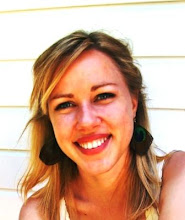Have you ever wanted to quit your job to join a paid sleep study? I didn't want to today, when I walked to work, and I was smiling like a fool because the rolls of new grass smelled so earthy and good under a blue sky. I don't want to when we read from the Psalter in staff prayer, and I don't want to when someone is encouraged just because of my peripheral role in something that thrills the heart of God.
But I confess that I have wanted to call that sleep study hotline, when the city is dark except for my cubicle. I have wanted to when I have seriously considered taking a nap on my keyboard. I have wanted to when my computer blinks at me with the blue screen of death, looking quite innocent about having just sucked my analysis into the black hole where lost data goes.
Most of the time, it is not hard for me to like work. That is a predisposition, not a virtue. I just get antsy without something to put my hands to. And if I do something, it might as well be well done.
Because work came easily, I did not for a long time giving more than passing consideration to what God has to say about work. But he says quite a bit. In Proverbs, there are dire warnings about sluggards going hungry. The New Testament says to work as unto the Lord. And my elementary school took as its motto that part about "studying to show thyself approved, a workman who need not be ashamed of his labor." That only scratches the surface, of course.
But sometimes my work hangs on me like a sack of paving stones. Then, all I want is to have it lifted from me. I want to retire. I forget that at age 23 and with loan debt, this is not a feasible option. I long for heaven, not because of the presence of my Lord there, but because of the total absence of spreadsheets. And since neither the Grim Reaper nor the Publishers' Sweepstakes has come to my rescue, I turn at last towards this topic of a theology of work.
A theology of anything is a tricky enterprise. The chief danger is that we shall seek knowledge instead of Jesus, and set up for ourselves a sacrosanct opinion that is as much an idol as any golden calf. That's why this blog is called "Towards a Theology of Work." I don't intend to answer the question of what a proper understanding of work is. I only want to come a bit closer to seeing it as God does, and I think it can be done by examining some of the most popular ways for thinking about work in light of Scripture.
Myth#1: Work is not part of God's original plan. It is God's punishment of man for the Fall. When God redeems the world, work will no longer be part of the picture.
Yes and no. In Genesis, we do read that God told gave Adam work to do long before the Fall. He named animals and acted as a sort of general superintendent. He had responsibilities to fulfill. That is the core of work. It was after the Fall that Adam's work became bitter to him. While in the garden he performed his work without strain, but in the exile of the wilderness, he had to wring his bread from an earth grown suddenly truculent. With the Fall, bitterness and futility entered our understanding of work, but work has been there all along. Not only did Adam work, but God did. God labored over His creation for six days. If God labored, we must be open to the possibility that work can be entirely holy and joyful, forever. And if we shall be like Him when we see Him, as Paul says, than perhaps heaven shall be a busier place that we are sometimes inclined to think.
Myth #2: Work is the highest end of man of earth.
There is something called a "Puritan work ethic." If someone is said to have it, you will hear murmurs of admiration. The Puritans, being strict adherents to Calvinism, thought that earthly prosperity was a sign of their election, so they put their hands to the plow and not only did not turn back, but did their furrows double-time. Their modern inheritors might be the doctors or CEOs or district attorneys who put in 18-hour work days with righteous zeal.
"I love my work. It's my life."
Is that wrong to say such a thing? Suppose they are unmarried, and so have not even the usual filial guilt to curtail their hours? Work, after all, is extolled in Scripture. It is beneficial to society, gives us purpose and security. It prevents idleness, which (don't you know?) is the Devil's playground. And doesn't Scripture say to work as unto the Lord? Doesn't that mean giving everything you have? Dropping in the harness?
But let us stop. Is that truly God's will for us? To burn the candle of our energies until it flickers and dies in martyred service?
Scripture says no. "The Lord gives rest to His beloved," says the Psalmist. And God roars with indignation against the breaking of the Sabbath, the inheritance of holy rest set aside for His people for all generations.
I will venture this much: Any adequate theology of work must incorporate a theology of rest. Work, as the gift of God, can be a wholly joyful and holy undertaking, but rest is equally so. Rest is a celebration of divine sovereignty and splendor. Rest says, "I can take my hands from the rudder, because God's hand is upon it still." Rest says, "My God is good, and all His works are marvelous. Let me soak it in."
What can all this mean to me in my cubicle? I'm still figuring it out. I expect I shall always be figuring it out. But again I will venture this much: When Jesus came, He proclaimed the coming of the kingdom of God. It started with him. Did he work hard? Ever so. Did he rest? During a storm. Is it possible for me? His resurrection promises me that, though I am always a work in progress, contending with my flock of fears and vices, His reality shall ever more become my reality. My ways of working and resting, properly surrendered, shall bear an increasing resemblance to His.
And to this I say, "Thy kingdom come."
All Clear!
-
Of all the memories, experiences and things I brought back from Uganda, I
have managed not to bring Malaria with me. I was so happy I had to share it
with ...
16 years ago





